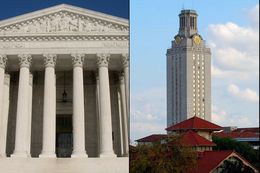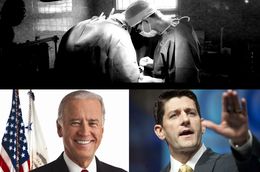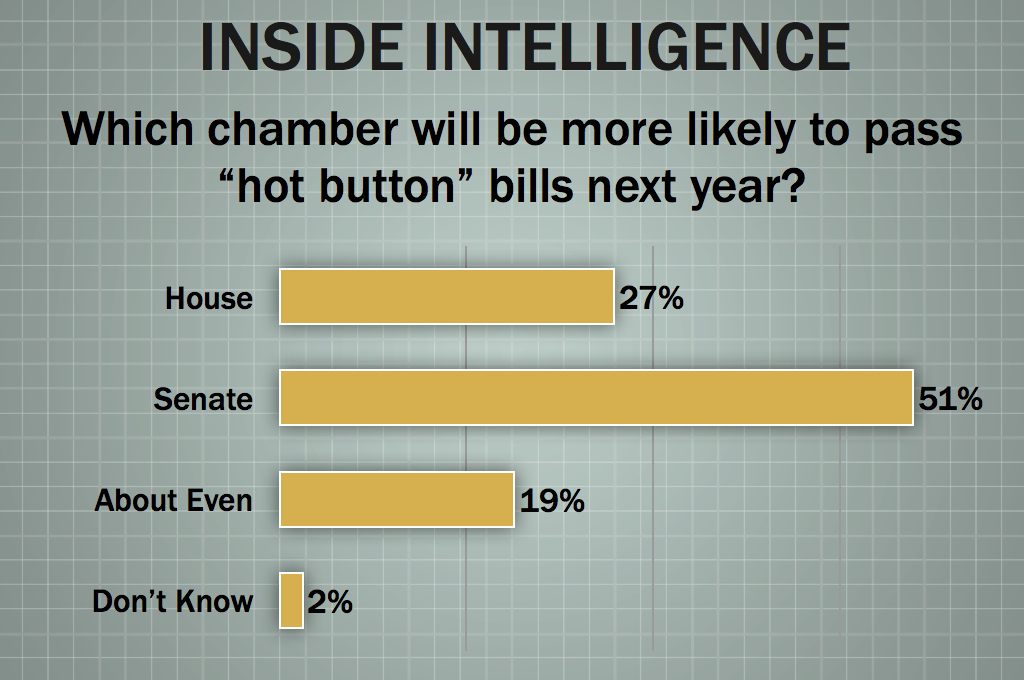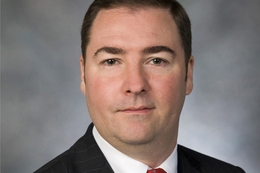
Gov. Rick Perry has compared Texas Medicaid to the Titanic, but economists and business advocates from both sides of the political aisle say Texas shouldn’t let the program sink just yet. They argue the political rhetoric against the federal government should be thrown overboard and Texas should expand Medicaid under federal health care reforms because it is a practical decision for the state budget.
It's a question worth debate: Would the Medicaid expansion bankrupt or save the state budget?
When the U.S. Supreme Court ruled states had the option to expand Medicaid under federal health reform, Perry quickly announced Texas would opt out. “I will not be party to socializing healthcare and bankrupting my state in direct contradiction to our Constitution and our founding principles of limited government,” Perry said in an open letter to the federal government.
At the Texas Tribune Festival last month, Perry doubled down on his statement that Texas would lose money by expanding the program: “Medicaid is burning up 25-plus percent of our total budget in the state of Texas now, so I made the analogy, why would you want to put 1,000 more people on the Titanic when you know how it’s going to turn out?”
In contrast to that claim, some economists say expanding Medicaid would actually save state money in other areas, such as funding spent on other public assistance programs, community health centers and public hospitals.
“It is not an issue of whether Medicaid and the [federal Affordable Care Act] are perfect — they are not!” wr0te Waco economist Ray Perryman in a report titled, “Only One Rational Choice: Texas Should Participate in Medicaid Expansion Under the Affordable Care Act."
"The bottom line is that the relevant question at present is not philosophical, but practical," he wrote.
Perryman contends that for every $1 Texas would spend on an expanded Medicaid program, the state would receive $1.29 in “dynamic state government revenue.” Essentially, he's saying the state would save more money in other areas of the budget than what it would contribute to Medicaid because of the expansion.
Under the ACA, if states expand Medicaid eligibility in 2014 to include additional indigent groups, such as adults below 133 percent of the federal poverty line, the federal government will cover all those individuals’ health care costs for the first three years. After that, the federal portion would decrease to no less than 90 percent of the cost for the newly eligible groups.
Texas currently has lower eligibility requirements for Medicaid than many states, which would have positive and negative consequences if the state chose to expand the program. Although the state would receive more federal money for the newly covered Medicaid recipients, the size of the expansion would put tremendous strain on the state’s administrative system and primary care network.
According to a report by the Kaiser Commission on Medicaid and the Uninsured, if Texas expanded Medicaid, newly covered individuals would make up 46 percent of enrollment by 2019 and Texas would receive higher federal matching rates than most other states. The report estimates Texas’ portion of Medicaid spending would only increase by three percent or $2.6 billion, while the federal portion would increase by 39 percent or $52.5 billion.
Similarly, the Perryman report estimates that in the first 10 years, Texas would contribute $15.6 billion to the program and the federal government would contribute $89.9 billion.
But Perry’s aides point to a presentation by the Health and Human Services Commission which emphasizes other factors that could raise Medicaid costs for Texas. For example, Texas will be required to raise primary care provider reimbursement rates to the same level as Medicare rates for 2013-2014. The federal government will cover the costs of the reimbursement increase for those years, but if Texas chose to extend the higher rates beyond 2014, it could cost the state an additional $595 million in general revenue through fiscal year 2017.
“The state would still have to cover all of the administrative costs,” Lucy Nashed, a Perry spokeswoman, said in an email.
Others argue state spending on the program will increase with or without the Medicaid expansion, because of the federal mandate for all individuals to acquire health insurance by 2014 and the so-called “woodwork effect” this provision will create.
In the New England Journal of Medicine, health policy economists at Harvard University explained the “woodwork effect” could encourage an additional one million Texans who are currently eligible for Medicaid to enroll in the program — to come out of the woodwork — because federal reform requires everyone to acquire health insurance by 2014.
Still, the authors of that report conclude that savings in uncompensated care could offset the more obvious expenses associated with federal health care. While states “are clearly in a fiscal bind in which Medicaid plays a large role, and several features of the ACA seem to worsen the budgetary outlook,” they wrote, “this perspective may be short-sighted as the federally subsidized expansion of Medicaid will replace outlays for uncompensated care that largely come from other parts of state budgets.”
John Hawkins, senior vice president for government relations at the Texas Hospital Association — which is in favor of the Medicaid expansion — said in September that Texas hospitals have already absorbed $14 billion in federal funding cuts to help finance federal health reform. “If we don’t take advantage of [the federal reforms], that money would potentially go to other states or just lapse,” Hawkins said.
Bottom line: Federal health reforms will have a tremendous impact on the state budget, Medicaid and the state’s primary care network, regardless of the expansion. Although Texas would need to commit additional spending for Medicaid, an expansion would likely save some money in other areas of the budget. But whether or not Texas expands the program, lawmakers will have to make adjustments to the program to accommodate changes caused by federal health care reform.
Editor's note: This article originally stated Texas would have to raise primary care reimbursement rates to the same level as Medicare rates if the state expanded the Medicaid program, but that measure will be required whether or not Texas expands Medicaid.












